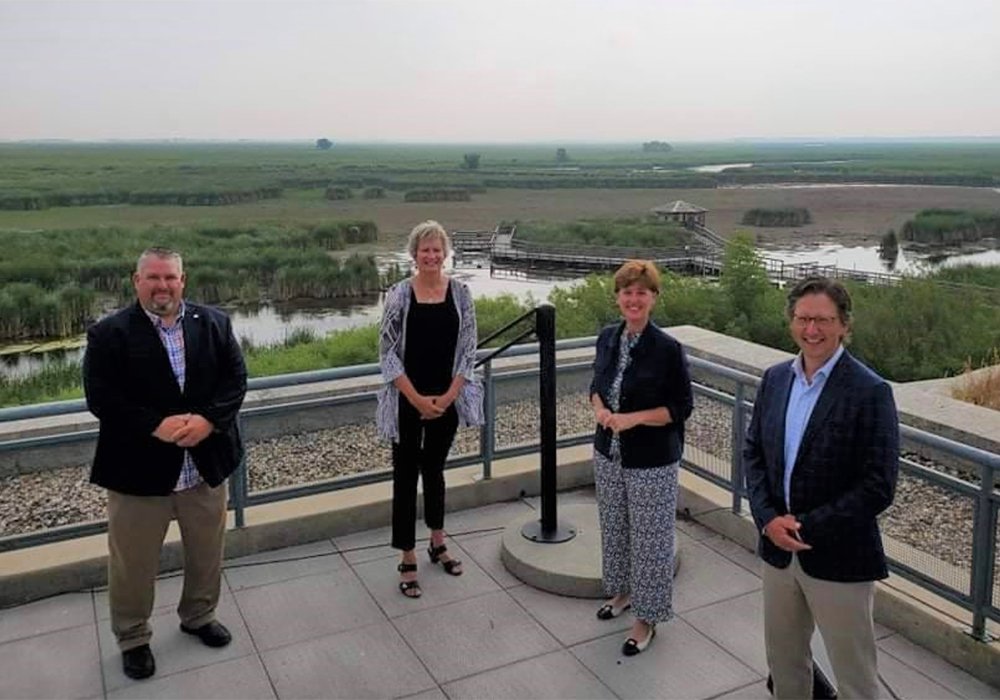Ottawa funds conservation, wildlife habitat

Three conservation organizations will share more than $25 million in federal funding for projects to sequester carbon and preserve biodiversity on the Prairies.
Federal agriculture minister Marie-Claude Bibeau announced the money during a stop at Oak Hammock Marsh in Manitoba July 23.
The projects are three-year initiatives under the Nature Smart Climate Solutions fund announced in the most recent federal budget.
Most of the money, $19.28 million, goes to Ducks Unlimited Canada. Chief executive officer Karla Guyn said the agency will restore wetlands and grasslands on about 35,000 acres, or about twice the size the city of Brandon. More than two million tonnes of carbon dioxide equivalent will be sequestered as a result.
“At the same time, hundreds of wildlife species will gain the habitat they need to thrive,” she said during the news conference. “Of course these achievements are only possible through the strong longstanding partnerships we have with people who live and work on the landscape.”
She said farmers, ranchers and landowners steward carbon and biodiversity assets and know the role nature plays in doing that.
Nature Conservancy of Canada will get $4.05 million for projects and match contributions from donors for its projects. Regional vice-president Kevin Teneycke said those include restoring previously cultivated land and planting native species in Alberta and expanding restoration in south central Saskatchewan.
“Right here in Manitoba we will be restoring mixed grass habitat and riverbank habitat along the Assiniboine River and its tributary, Beaver Creek,” he said.
NCC’s work to protect natural habitat will be done on about 4,700 acres during the next three years and offer local benefits such as enhanced drought and flood mitigation.
Manitoba Habitat Heritage Corp. will receive $2.4 million to conserve and enhance the management of threatened grasslands and wetlands in southwestern Manitoba on about 5,500 acres.
Chief operating officer Stephen Carlyle said projects will be done in partnership with Birds Canada and Manitoba Beef Producers and include three pillars: the conservation and permanent protection of existing habitat on about 3,600 acres; the restoration of 325 acres of currently cultivated land to grass and
wetland; and work with private producers on best management practices on about 1,600 acres.
“We estimate that that’s going to sequester about 265,000 tonnes of CO2 equivalent,” he said.
Bibeau said her visit to Manitoba’s drought areas gave her a first-hand look at the devastating effects of drought, extreme heat and insect damage.
She said protecting nature to preserve biodiversity and store carbon will help Canada to meet its climate change targets. Grazing cattle preserves grasslands, improves soil, water and air and preserves habitat, she noted.
These three projects are among 14 getting money this year from the 10-year, $631-million fund.
“Overall, it is estimated that nature-based solutions can provide almost 40 percent of the emissions reductions needed by 2030 targets,” Bibeau said. “They are also vital to achieving net zero and they will create green jobs in communities across the country.”
Contact karen.briere@producer.com
Source: producer.com

